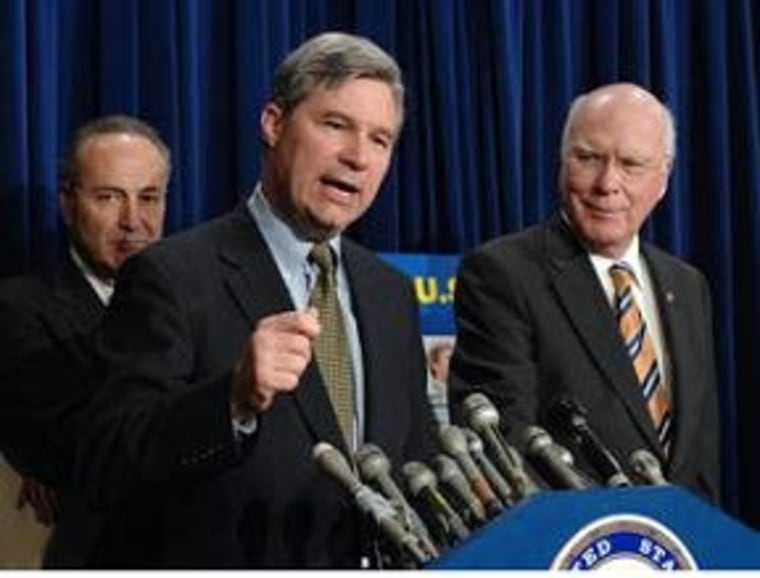Seven members of the Senate Democratic caucus, led by Sen. Sheldon Whitehouse (D-R.I.), formally introduced the "Paying a Fair Share Act" this morning. It sets up an important election-year fight over the "Buffett Rule."
Sahil Kapur has the latest from Capitol Hill:
Whitehouse's office said it's still waiting for an official score but expects the legislation to produce tens of billions of dollars in deficit reduction. The policy is structured as a minimum tax for people making over $1 million per year."It's inexcusable that our tax system permits ultra-high income earners to pay a lower tax rate than a truck driver or a janitor, and this legislation would help fix that unfair system," the Rhode Island Democrat said.
There was a time when this sentiment enjoyed bipartisan support, though that point is now long gone.
Indeed, Republican opposition is not only expected to be fierce; it's expected to kill the legislation outright. Even if the "Paying a Fair Share Act" sponsors could overcome a GOP filibuster in the Senate -- an unlikely scenario in its own right -- the Republican-led House almost certainly won't even bring the bill to the floor.
Still, given the larger circumstances, and the strong public support for the policy, it's a debate worth having.
A New York Times editorial helped make the case today.
The bill ... would impose a new rate of up to 30 percent that would phase in gradually on incomes between $1 million and $2 million. The new rate would have to be paid if it is higher than the taxpayer's current rate. It would operate like the alternative minimum tax, superseding all brackets and the lower rates for investment income, though it would preserve the incentive for charitable donations.Those taxpayers who earn most of their high incomes from salaries would not be affected, as their rates are already higher than 30 percent. But taxpayers like Mitt Romney, who earn most of their income from investments or hedge-fund partnerships that are taxed at 15 percent, would have to pay substantially more.President Obama prefers the example of Warren Buffett, who, he has said, pays a smaller tax rate than his secretary. (Thus, he calls it the "Buffett Rule.")The Congressional Research Service estimates that the Buffett Rule, requiring millionaires to pay at least the same rate as most middle-income taxpayers, would affect about a quarter of all millionaires, or 94,500 taxpayers. Citizens for Tax Justice, a liberal policy group, says the bill's 30 percent rate would bring in about $50 billion a year.
Greg Sargent, who's been following the issue closely, has more on the bill and its prospects.
